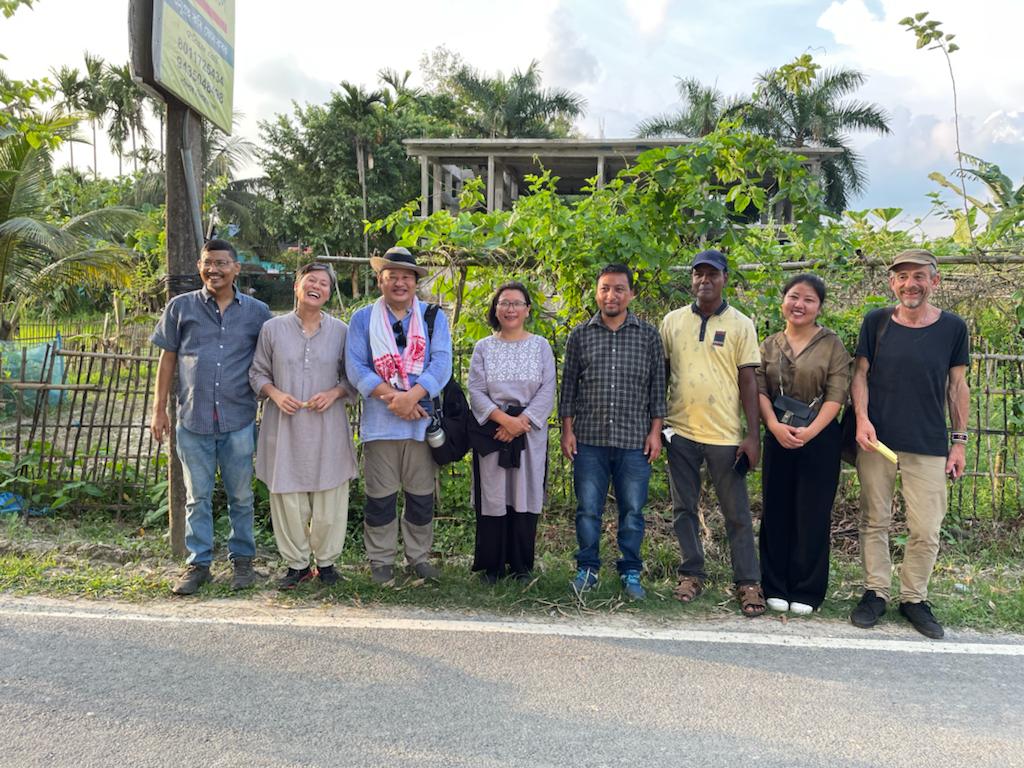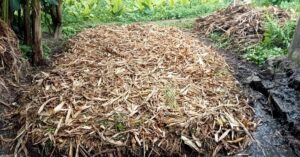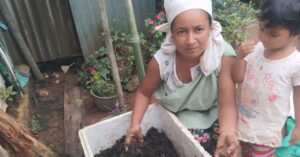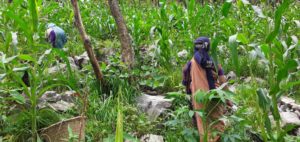NESFAS’ Senior Associate Bah Bhogtoram Mawroh participated as a resource person in the recently concluded Seeds for Future: Chapter 1 workshop organised by North Eastern Social Research Centre (NESRC), Guwahati from the 15-16th September in Assam. Along with Bah Bhogtoram Mawroh, the other resource persons of the workshop were prominent figures engaged in critical work in the realm of food justice in the North East, viz. Seno Tsuhah (Chizami Women Society, Nagaland), Mahan Chandra Borah (Annapurna Seed Library, Jorhat), Amba Jamir (The Missing Link/Integrated Mountain Initiative/ Sustainable Development Forum, Nagaland), Vilazonuo Gloria (North East Network, Nagaland), and Manorom Gogoi (Tholgiri, Guwahati).
The first day of the workshop was an informal meeting among the resource persons where the journey of each participant in the realm of their work towards food sovereignty was shared. This was followed by a general discussion on the field experiences of the different participants. Among the different topics that emerged during this discussion were the issues of pests. Here, Bah Bhogtoram shared the experience of conducting agroecological workshops with communities on the issue of pest management. He mentioned one instance of controlling the pest in millet at Nagaland where the most efficient method was changing the date of harvesting. He added that the same problem is faced by the Daribokgre community in Meghalaya and shared how the community are planning to address the issue: “The community will try to revive paddy varieties that have an early ripening period. Since the early ripening variety has been lost in the community, they will try to source the seed from the other villages who still have the seed.”
A panel discussion titled ‘Indigenous Foodways: The Future of Seeds, Food and Community in the Eastern Himalayas’ was held at the Tata Institute of Social Sciences, Guwahati Campus the following day. The panel discussion saw the resource persons all sharing their experiences with the students from the Centre of Ecology, Environment and Sustainable Development. Bah Bhogto topic comprised of two studies that have been done by NESFAS which show the resilience of the Indigenous People’s Food System, viz., FAO study on the resilience of the jhum-based food system in Nongtraw and the FIES study in 18 villages of Meghalaya and Nagaland. He also showcased seeds of Foxtail Millet, Sichuan, Rice Beans and Gymnopetalum Cochinensis brought from the Community Seed Banks of Daribokgre and Darechikgre in Garo Hills, giving a special explanation on the importance of the seeds on display.

Interaction with the students followed thereafter where the students questioned the panel on the viability of organic farming in light of the Sri Lankan organic agriculture crisis, pest management, ecological sustainability of jhum cultivation, and perception of organic farming being an elitist activity. Bah Bhogtoram based his answers on NESFAS’ work with Indigenous communities on issues related to the Indigenous Peoples’ Food System; its protection and propagation. With regards to pest management, the various bio-pesticides made by the communities using garlic, tobacco, chillies etc., were shared and the concept of Integrated Pest Management was discussed. The system of jhum cultivation and its relationship with the health of the forest in jhum-based communities like Dewlieh, Nongtraw, Khapmaw was also shared with the participants.
The workshop was part of the project ‘Practicing Food Sovereignty: Indigenous Peoples and Agroecological Relationships in the Eastern Himalayas’ supported by Stockholm University and was conducted across four different venues in Assam.





